
The Havana Film Festival is a Cuban festival that focuses on the promotion of Latin American filmmakers. It is also known in Spanish as Festival Internacional del Nuevo Cine Latinoamericano de La Habana, and in English as International Festival of New Latin American Cinema of Havana. It takes place every year during December in the city of Havana, Cuba.
Pablo José Meza is an Argentine film producer, director, and screenplay writer. Sometimes he is credited as Pablo Meza. His debut film, Buenos Aires 100 Kilómetros, was well regarded by film critics and won many awards.
Cerromaior is a 1981 Portuguese drama film directed by Luís Filipe Rocha. It was screened in the Un Certain Regard section at the 1981 Cannes Film Festival, and was awarded the Colón de Oro at the Festival de Cine Iberoamericano de Huelva.

Chilean cinema refers to all films produced in Chile or made by Chileans. It had its origins at the start of the 20th century with the first Chilean film screening in 1902 and the first Chilean feature film appearing in 1910. The oldest surviving feature is El Húsar de la Muerte (1925), and the last silent film was Patrullas de Avanzada (1931). The Chilean film industry struggled in the late 1940s and in the 1950s, despite some box-office successes such as El Diamante de Maharajá. The 1960s saw the development of the "New Chilean Cinema", with films like Three Sad Tigers (1968), Jackal of Nahueltoro (1969) and Valparaíso mi amor (1969). After the 1973 military coup, film production was low, with many filmmakers working in exile. It increased after the end of the Pinochet regime in 1989, with occasional critical and/or popular successes such as Johnny cien pesos (1993), Historias de Fútbol (1997) and Gringuito (1998).
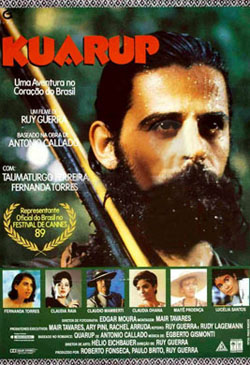
Kuarup is a 1989 Brazilian drama film directed by Ruy Guerra. It was filmed at the Xingu National Park, Mato Grosso, and in Recife, Pernambuco.
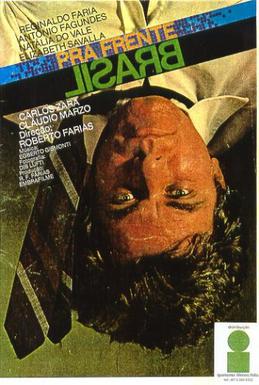
Pra Frente, Brasil is a 1982 Brazilian drama film directed, written and produced by Roberto Farias. It tells the fictional story of a man mistakenly arrested by a group linked to the military dictatorship during the 1970 FIFA World Cup.

The Huelva Ibero-American Film Festival, held since 1975 in Huelva, Spain, is the oldest film festival in Europe dedicated to the Ibero-American cinema.
The Effect of Love is a 2007 Argentinian drama film, written and directed by Eliseo Subiela, an Argentinian film director. The film was shot in Buenos Aires and San Luis in Argentina.
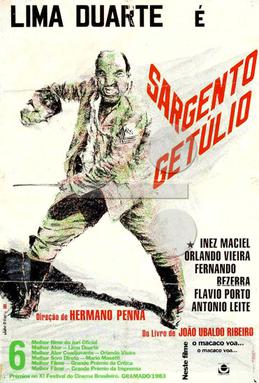
Sergeant Getulio is a 1983 Brazilian drama film directed by Hermanno Penna. It was shot in Rio de Janeiro's neighborhood São Cristóvão and Laranjeiras, as well as in Sergipe's municipalities Nossa Senhora da Glória, Aracaju, Barra dos Coqueiros, and Poço Redondo.

A Hidden Life is a 2001 Brazilian drama film directed by Suzana Amaral.

Forbidden to Forbid is a 2006 Brazilian-Chilean-Spanish drama film directed by Jorge Durán. It stars Caio Blat, Maria Flor and Alexandre Rodrigues as teenagers in a love triangle.
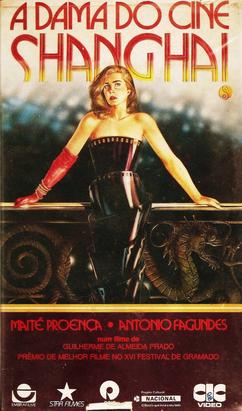
The Lady from the Shanghai Cinema is a 1988 Brazilian thriller film directed by Guilherme de Almeida Prado. The film borrows some references from Hollywood films noirs of the 1940s, mainly Orson Welles' The Lady from Shanghai; its name is a play on the title of Welles's film.
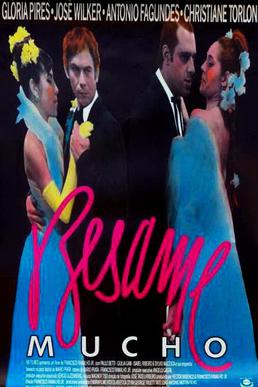
Besame Mucho is a 1987 Brazilian romance drama film directed by Francisco Ramalho Jr., based on the play of the same name by Mário Prata.

A Summer Rain is a 1978 Brazilian comedy-drama film directed by Carlos Diegues. It tells the story of Afonso, a newly retired sixty-five-year-old man who falls in love with his neighbor.
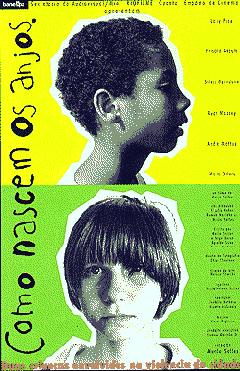
How Angels Are Born is a 1996 Brazilian crime drama film directed by Murilo Salles. It stars Priscila Assum and Silvio Guindane as two Rio de Janeiro favela's children who become involved in the kidnapping of an American man played by Larry Pine. How Angels Are Born has received awards at film festivals, and has been well received by critics.
Carmen Brito Alvarado is a Chilean filmmaker, restorer, and editor. She is best known for rescuing important works of Chilean cinema.
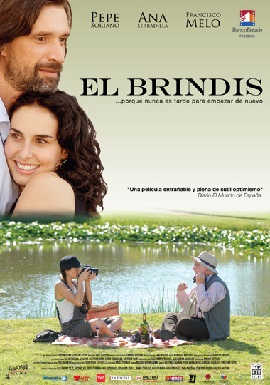
The Toast is a 2007 Chilean-Mexican romantic comedy-drama film directed by Shai Agosin and written by Roberto Brodsky. Starring Ana Serradilla, Francisco Melo and Pepe Soriano. It competed for the Colón de Oro at the 33rd Huelva Ibero-American Film Festival.













